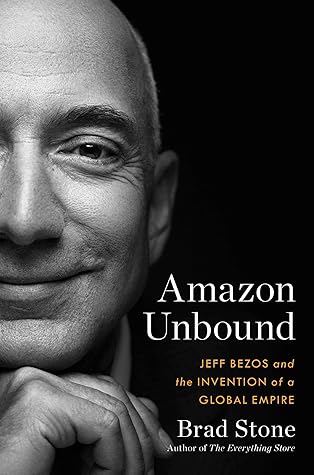More on this book
Community
Kindle Notes & Highlights
“Every interesting thing I’ve ever done, every important thing I’ve ever done, every beneficial thing I’ve ever done, has been through a cascade of experiments and mistakes and failures,”
focused on satisfying customers over just about everything else, including the feelings of his employees.
Unrealistically, Bezos wanted to release the device in six to twelve months.
“The biggest needle movers will be things that customers don’t know to ask for,” he would write years later in a letter to shareholders. “We must invent on their behalf. We have to tap into our own inner imagination about what’s possible.”
throwing more engineers at failing technology projects only makes them fail more spectacularly.
Bezos didn’t penalize Ian Freed and other Fire Phone managers, sending a strong message inside Amazon that taking risks was rewarded—especially
Each team was run by a so-called “single-threaded leader” who had ultimate control and absolute accountability over their success or failure.
Alexa execs would say that Bezos’s close involvement made their lives more difficult but also produced immeasurable results.
But there were drawbacks to the frenetic speed and growth. For years the Alexa smartphone app looked like something a design student had come up with during a late-night bender.
He set out to “find all the places that customers are suffering from our organizational structure.”
“Every time I was in a room with him, he never asked us, ‘How much is this going to cost me?’ or ‘Can we make money in X amount of time?’ He would look at us and say, ‘I know this is really hard and there is a lot of fatigue that comes with inventing something new. You’re heading in the right direction.’ ”
“If I have to choose between agreement and conflict, I’ll take conflict every time,” Bezos often said. “It always yields a better result.”
“Jeff is master of ‘this isn’t working today, but could work tomorrow.’
We all know that if you swing for the fences, you’re going to strike out a lot, but you’re also going to hit some home runs. The difference between baseball and business, however, is that baseball has a truncated outcome distribution. When you swing, no matter how well you connect with the ball, the most runs you can get is four. In business, every once in a while, when you step up to the plate, you can score 1,000 runs. This long-tailed distribution of returns is why it’s important to be bold.
“There are two ways of building a business. Many times, you aim, aim, aim, and then shoot,” he said, according to three executives who were there. “Or, you shoot, shoot, shoot, and then aim a little bit. That is what you want to do here. Don’t spend a lot of time on analysis and precision. Keep trying stuff.”
At the same time, she also felt like she had “given more than I got back” and didn’t like who she was becoming as a leader or a person.
“At some point along the way it moved from an admirable mission to an uncomfortable awareness that, for me, Jeff Bezos too often didn’t make admirable choices,” she said. “He continues to amass an obscene amount of money and do very little with it for the good of society.”
an article, titled “Inside Amazon: Wrestling Big Ideas in a Bruising Workplace.”
“purposeful Darwinism”
after the Times story, Amazon made several changes to its culture that it said (somewhat dubiously) were already underway before the article was published.
We are not afraid to fail.”
displaying his characteristic ability to shift disciplines multiple times a day, then reduce complex issues down to their most essential essence,
“Averages are bad measures. I want to see actuals, highs, lows and why—not an average. An average is just lazy.”
Amazon’s corporate compass only pointed one way: toward what customers wanted.
exhibited some of the management qualities—detail-oriented, dogged determination, a merciless driver of underlings—of the Bezosian leadership template.
They would do anything they possibly could to get their stuff out there. That is just the Amazon way.”
union workers often seemed reflexively opposed to the many improvised adjustments that were necessary for Amazon to fulfill its promises to customers.
establishing a pattern of making changes only after he read criticism in the media.
Like many of the managers at Amazon who so snugly fit the Bezosian leadership template, Clark’s intellect trumped his emotional intelligence.
he could take Bezos’s ambitious visions, convert them into something approximating reality, and then grow them into systems that didn’t blow apart at Amazon’s tremendous size.
Clark had proven himself a true Amazonian, putting loyalty to the company above personal friendship
“I can take complicated stuff and figure out how to boil it down into what you need to do to actually make it big.”
“We always learned more from failure than we did success,”
Changes to Section 230 could force Amazon to be accountable for fraudulent or unsafe products sold on its site by third-party sellers.


